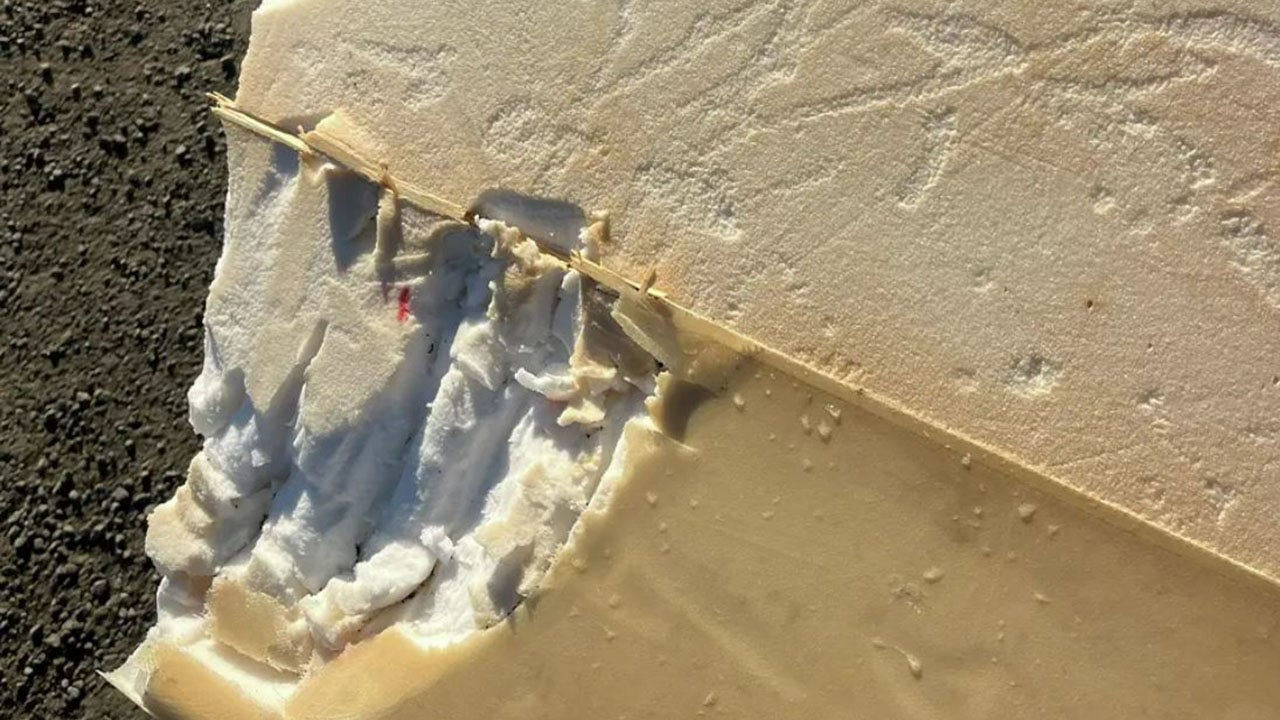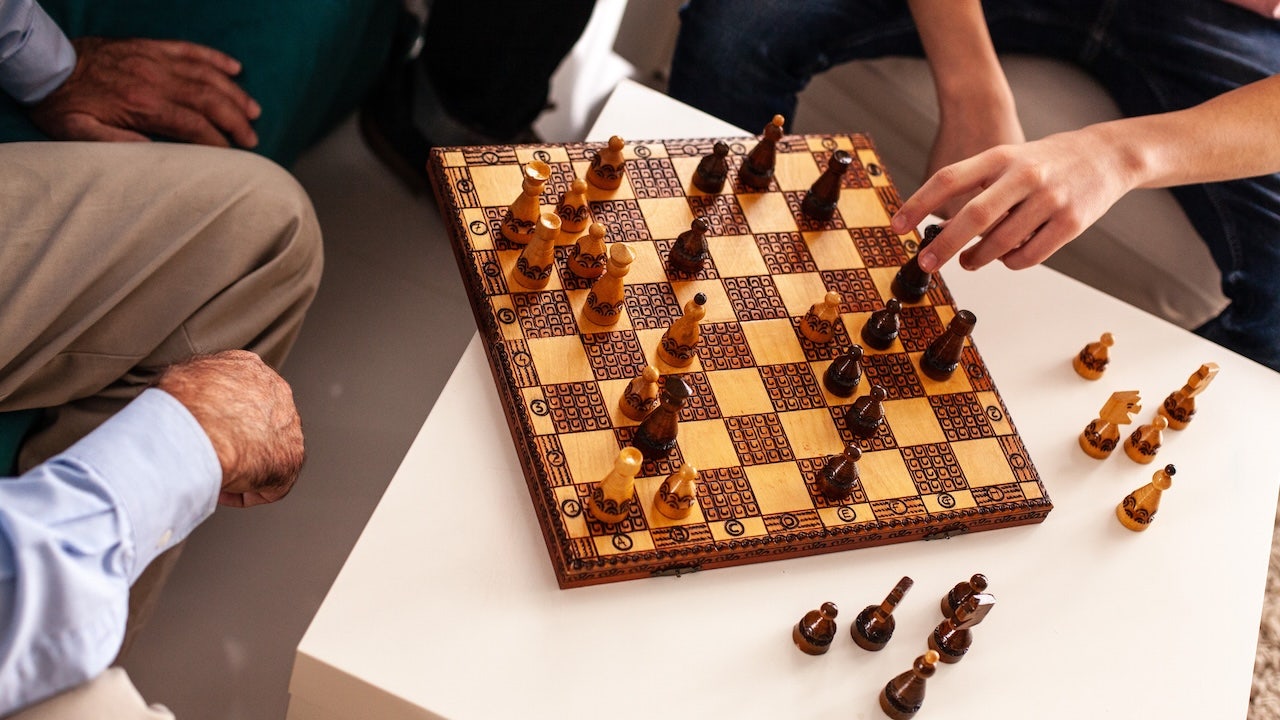NEWYou can now listen to Fox News articles!
Archaeologists recently unveiled an Egyptian vase inside what was once a fast-food kitchen in Pompeii.
In a Nov. 6 Facebook post, the Pompeii Archaeological Park said the ceramic situla, or vase, was found in the Thermopolium in Regio V, an ancient snack bar.
"The glazed vessel, usually found in the Vesuvian area as a prized decorative object in gardens or representative spaces, was evidently reused here as a kitchen container," officials said.
ARCHAEOLOGISTS UNCOVER 1,600-YEAR-OLD WINE FACTORY HIDDEN NEAR ANCIENT MOUNTAIN CASTLE
"Ongoing restoration analysis may eventually reveal what it once held."
The Thermopolium was destroyed with the rest of Pompeii when Mount Vesuvius erupted in 79 AD.
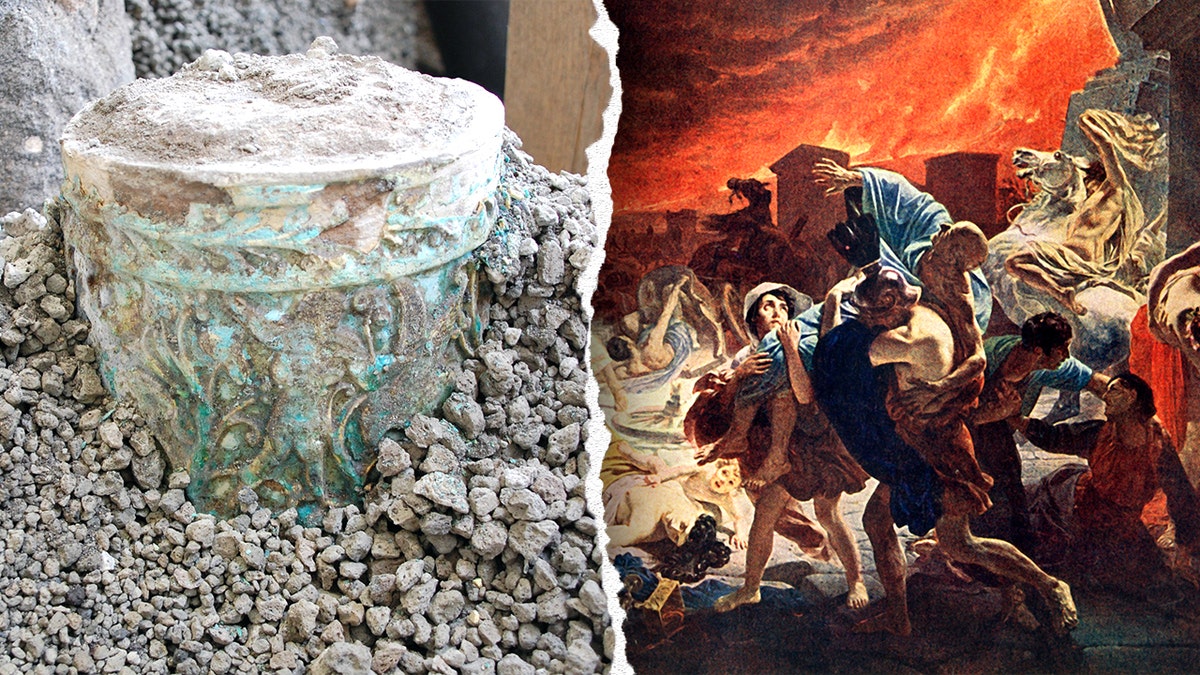
Archaeologists uncovered an Egyptian vase hidden inside an ancient Pompeii snack bar buried by Mount Vesuvius in 79 AD. (Pompeii Archaeological Park via Facebook; The Print Collector/Getty Images)
Though the excavation took place in 2023, officials didn't announce the find until this month.
CLICK HERE TO SIGN UP FOR OUR LIFESTYLE NEWSLETTER
Archaeologists also uncovered other fascinating details about the Thermopolium, including its service areas and a modest upstairs apartment where the shopkeepers once lived.
"We see here a certain creativity in decorating both sacred and everyday spaces."
"In the ground-floor kitchen, cooking tools [such as] mortars and pans and numerous wine amphorae of Mediterranean origin were found still in place," the translated post added.
CLICK HERE FOR MORE LIFESTYLE STORIES
Park director Gabriel Zuchtriegel said the vase reflects the good taste of the owners, even in a "lower-class" establishment.
"We see here a certain creativity in decorating both sacred and everyday spaces — that is, the household altar and the kitchen — using objects that reflect the permeability and mobility of tastes, styles and likely also religious ideas within the Roman Empire," Zuchtriegel said.
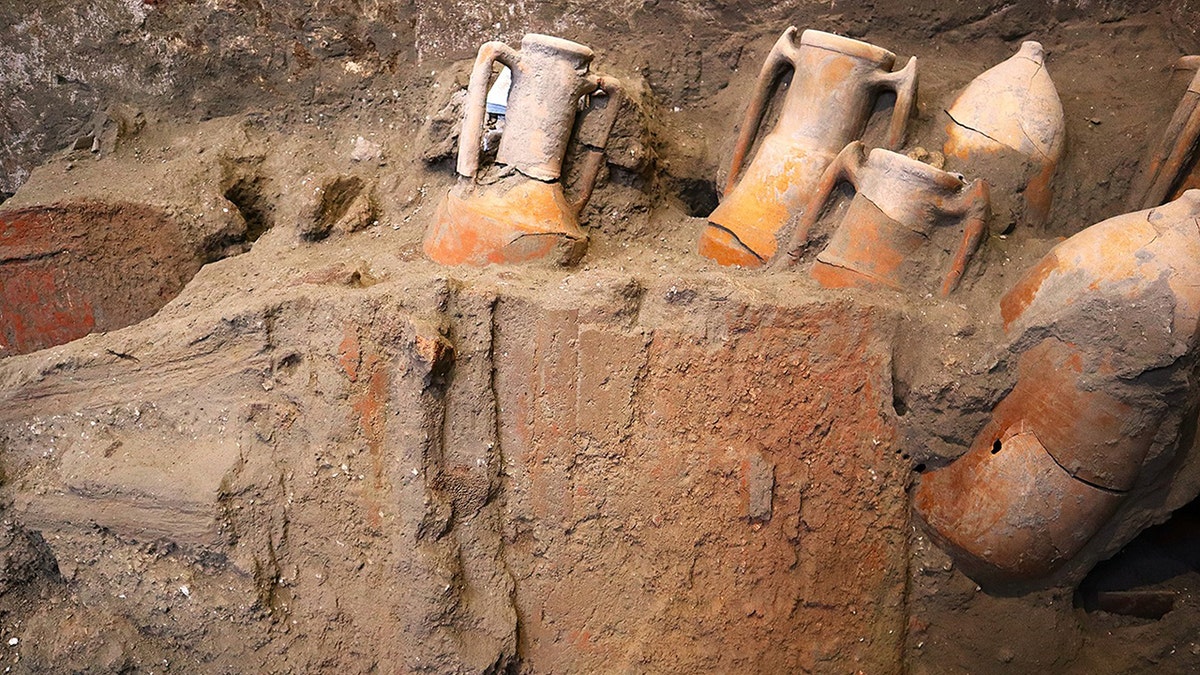
Experts say the glazed vessel found in the Pompeii eatery was likely reused as a kitchen container. (Pompeii Archaeological Park via Facebook)
"And we see this phenomenon not at an elite level, but in the backroom of a popina, a street food outlet of Pompeii — in other words, at a middle- or lower-class level of local society, which nonetheless played a key role in promoting Eastern cultural and religious forms, including Egyptian cults and, later, Christianity."
TEST YOURSELF WITH OUR LATEST LIFESTYLE QUIZ
Officials also described the situla as a "testament to the commercial and cultural exchanges that characterized Pompeii."
In recent months, the Pompeii Archaeological Park has unveiled other fascinating archaeology-related developments.
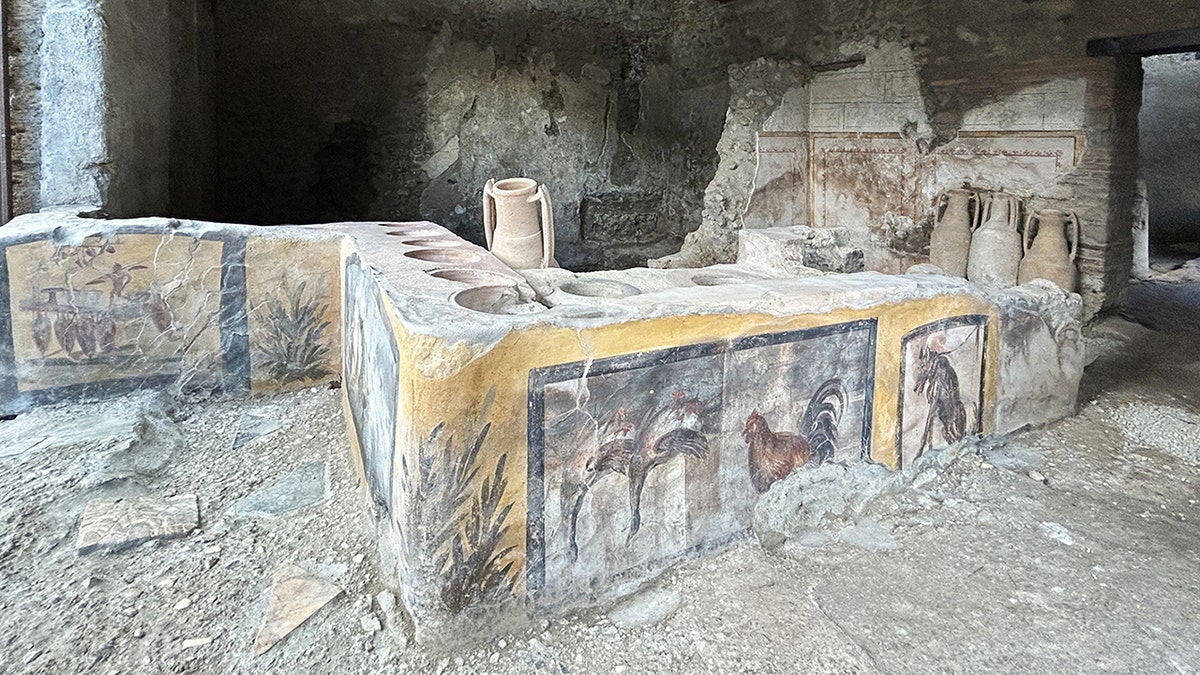
The Thermopolium, destroyed in 79 AD, preserved evidence of ancient Roman food service and urban living. (Pompeii Archaeological Park via Facebook)
This summer, an ancient garden in Pompeii was reconstructed with thousands of historically accurate plants.
CLICK HERE TO GET THE FOX NEWS APP
Earlier in the spring, officials revealed new details about a family's fight for survival when Vesuvius erupted.








